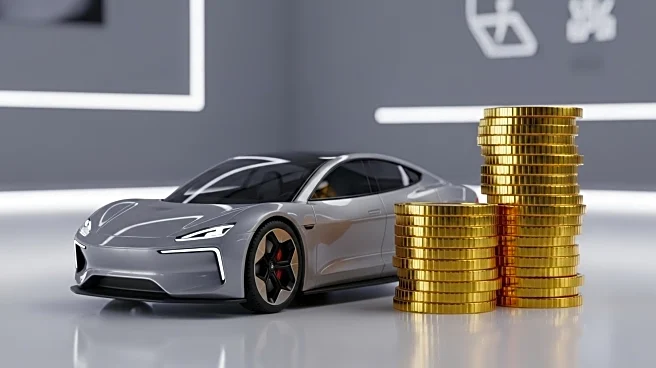What's Happening?
Tesla's board has unveiled a new compensation package for CEO Elon Musk, potentially worth $1 trillion if he meets ambitious targets by 2035. The plan includes achieving a market cap of $8.5 trillion and meeting operational goals such as deploying 1 million robotaxis. This proposal follows a previous successful pay deal from 2018, which significantly boosted Tesla's stock. The new package aims to motivate Musk to lead Tesla through a critical growth phase, despite current challenges in the company's performance and product delays.
Why It's Important?
The proposed pay package underscores the high stakes involved in Tesla's future growth and innovation. Achieving the outlined targets would require substantial advancements in Tesla's technology and market presence, potentially reshaping the electric vehicle industry. The plan reflects the board's confidence in Musk's leadership and vision, despite recent setbacks. However, the ambitious nature of the targets raises questions about their feasibility, given Tesla's current financial and operational challenges. The outcome of this proposal could influence investor sentiment and Tesla's stock performance.
What's Next?
Tesla shareholders will vote on the proposed compensation package, which could impact Musk's future role and influence within the company. The plan's success depends on Tesla's ability to overcome current obstacles and achieve significant growth. Stakeholders will be closely monitoring Tesla's progress in meeting the ambitious targets, as well as the company's appeal against a Delaware court ruling invalidating Musk's previous pay deal. The results of these developments will shape Tesla's strategic direction and market position.
Beyond the Headlines
The compensation package highlights broader issues of executive pay and corporate governance, particularly in high-growth industries like technology and automotive. It raises ethical considerations about the balance between rewarding innovation and ensuring sustainable business practices. The focus on ambitious growth targets reflects the competitive pressures facing Tesla and the electric vehicle market, with implications for industry standards and consumer expectations.











